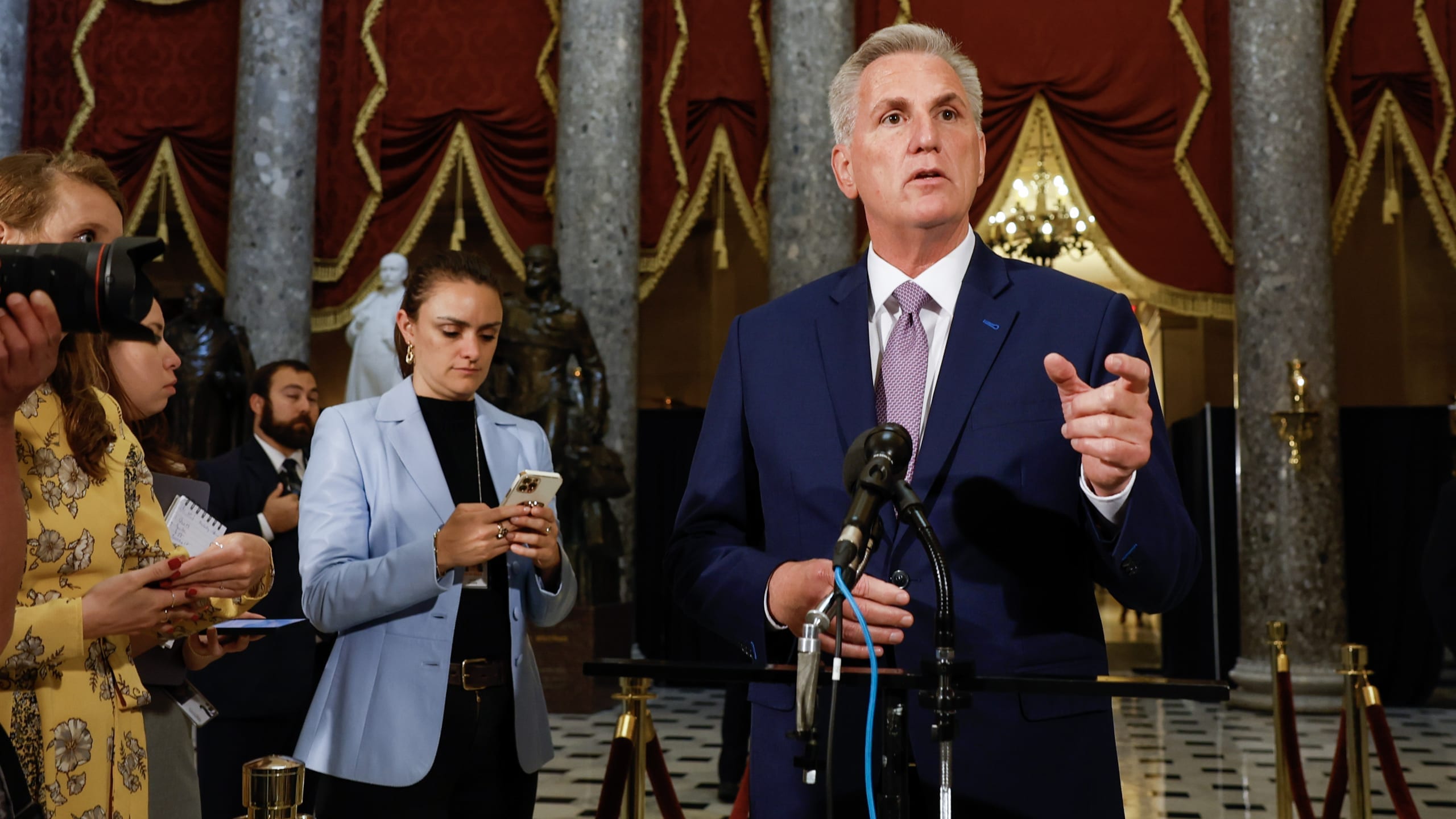SNAP work requirements tied to debt ceiling could harm Black people
Activists claim that Republican proposals and arguments related to employment and public safety-net benefits are rooted in a history of racist policy.
As closely watched budget negotiations to raise the debt ceiling and prevent a historic default on the nation’s bills continue in Washington, D.C., this week, lawmakers and advocates are worried Black, brown and poor communities could be critically harmed in the process.
Congressional Republicans led by Rep. Kevin McCarthy, the House Speaker, have proposed cuts to public safety-net programs and rules enacting work requirements for food and medical safety benefits that millions of Black, Hispanic and poor communities rely on each month.

While President Joe Biden indicated that he would “not accept” work requirements that would impact the “medical health needs of people,” referring to Medicaid, he has not categorically ruled out policies that would cut programs like the Supplemental Nutrition Assistance Program, also known as SNAP, and Temporary Assistance for Needy Families (TANF).
Biden told reporters last Wednesday that whatever deal he makes with Republicans, it won’t be “anything of consequence.”
The Congressional Black Caucus released a statement on Monday saying it has “no intention of allowing families to go hungry to appease Republicans, and we will stand by President Biden and fight against Speaker McCarthy’s red line.”
The 58-member caucus of Black Democratic members of Congress called the Republicans’ proposal of eligibility criteria “cruel and ill-advised.”
“Work requirements are nothing more than a conservative talking point,” Patrice Willoughby, senior vice president of policy and global impact at the NAACP, told theGrio.
She warned that establishing stricter work requirements for social safety programs could “deprive potentially one million kids of their cash benefits from their family.”
The NAACP, in a letter to Congress, condemned Republican budget proposals that would cap overall spending for programs like Medicaid, Pell Grants, SNAP, school lunch programs and others, which the legacy civil rights organization said would disproportionately harm Black communities.
Touting the policies and investments of the Biden-Harris administration and Congressional Democrats, NAACP President Derrick Johnson wrote, “We have come closer than ever as a nation to closing the unacceptable gap between white and Black unemployment.”
Ty Cox Jones, vice president for food assistance at the Center on Budget and Policy and Priorities, told theGrio that people’s “ability to eat should not be tied to their engagement in the workforce.”
Work requirements already exist for programs like SNAP and TANF. However, Republicans argue that they don’t go far enough.
“I don’t think hard-working Americans should be paying for all the social services for people who could make a broader contribution and instead are couch potatoes,” said Rep. Matt Gaetz, (R-Fla).
According to the New York Times, the Republican lawmaker introduced legislation that would deny benefits to able-bodied adults unless they work for 120 hours every month, volunteer or participate in a work program for up to 80 hours or participate in a combination of the two.
Another bill from Rep. Dusty Johnson, (R-S.D.), would subject Americans between 49 and 65 who don’t have children to current SNAP work requirements, which currently apply to adults 18–49.

Cox said there are “multiple reasons why people are under-employed or unemployed,” adding, “It is not that people are sitting on the sidelines or choosing to not work.”
She pushed back against those who may argue someone in their 50s or early 60s “isn’t that old.” That argument is easy to make when it’s “coming from someone who sits at a desk,” she said.
“But what about the guy who was the mechanic? The nurse, the teacher, the home health aide who bends over and picks up people over and over and over again?” she asked rhetorically. “By the time you’re 50, it feels a little different than when you did that in your 20s.”
These types of workers may not be disabled but “they can’t work the same way they worked before,” Cox noted.
Willoughby of the NAACP added that there are also individuals in the household “helping out through caregiving,” and depriving them of food assistance or cash benefits is “not going to make them miraculously work” because they’re “already working.”
Activists claim that Republican proposals and arguments related to employment and public assistance programs are rooted in a history of racist policy.
Willoughby recalled the rise of the “welfare queen” trope in the 1970s, popularized by then-Republican presidential candidate Ronald Reagan. The term was often associated with Black women.

“The racist images surrounding Black women [have] long been used by conservatives to divide the country,” she argued. “And it remains in use today as a way of slandering and making people, poor people and people of color, look as though they’re lazy.”
The latest proposals from Republicans are nothing more than “racism disguised as policy,” said Willoughby, who vowed that “the NAACP is not going to stand for it.”
When asked if the NAACP heard back from the Biden-Harris administration or Congress about its letter on the debt ceiling, Willoughby said the organization “received confirmation” from the White House that they “understand these issues.”
She noted that her group understands that “negotiation is a part of politics,” but the well-being of Black and poor Americans “should not be one of the negotiated items.”

Gerren Keith Gaynor is a White House Correspondent and the Managing Editor of Politics at theGrio. He is based in Washington, D.C.
TheGrio is FREE on your TV via Apple TV, Amazon Fire, Roku and Android TV. Also, please download theGrio mobile apps today!


